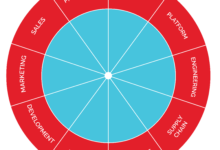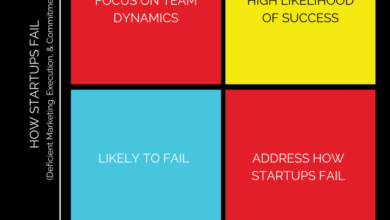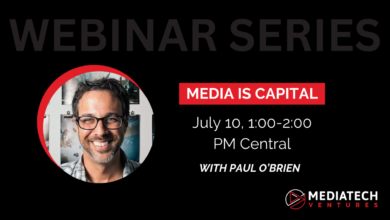The Compact DISC of Building a Successful Team

Developed by Harvard psychologist Dr. William Marston in the 1920s, it took decades for an incredibly effective behavioral assessment to find popularity developing high performing teams. DISC, as it’s called, helps everyone understand their preferred work styles so that you might work together better, hire diverse and collaborate additions, and decrease conflict while improving productivity.
Before we get to the heart of the matter, it’s worth noting that Marston is an entrepreneur born of our collective creative class, just as are so many of us in media. My look into his life made me all the more a fan of what he explored in DISC because beyond his psychological work and development of DISC, he contributed to the first polygraph test, worked as a lawyer, authored self-help books, and created Wonder Woman.
With that depth and breadth of experience, it struck me that his point of view about teams might have a degree of greater merit to teams such as yours.
Dominance (D), Influence (I), Steadiness (S), and Conscientiousness (C)
DISC. Developed around 1928, while Marston uncovered the idea, it wasn’t until decades later that it found popularly in large part because Marston didn’t create an assessment that could be used for any practical application in business. In 1956, Walter Clarke, an industrial psychologist, constructed an assessment which confirmed Marston’s theory of the DISC model. That became a “Self Discription” test which was used to create the Personal Profile System which eventually became Everything DiSC … the point is, it has an extensive history and, now dozens of personality assessments and team building perspectives.
To simplify DISC for us, for you, I wanted a condensed version … so forgive me and our fixation with MusicTech for realizing I wanted a Compact DISC.
The person to whom it struck to turn as a guide to early teams and building a great companies is Insperity’s Pete Hinojosa, “Build a successful team by clearly communicating the expectations, boundaries, resources available, tribal traditions, and roles and responsibilities. Then move on to the goals.”
DISC, as Hinojosa simplified it:
D – Dominance
This person wants to get the job done. D’s tend to be fast-paced and task-oriented. They prefer respect, control and challenge.
I – Influence
I’s want to have fun. Also fast-paced, I’s add energy to the room, like lots of people interaction and need recognition and enthusiasm.
S – Steadiness
This employee wants everyone to be nice. S’s tend to be reserved, team-oriented and slower paced. They support those around them and are good at listening.
C – Conscientiousness
C’s want to be precise and careful. C’s care about the small details and value accuracy. They prefer logic and data-based decisions.
To what extent are you fast-paced? Do you add energy to the room? Are you supportive of others? A good listener. How careful and precise are you as a person?
A Compact DISC
What we derive from our self assessment, is first, an understanding how others might get to know and better work with us. From that, our teams can thrive through diversity, differences, self motivation, and a culture in which everyone can thrive.
A common mistake managers make when they look to build a successful team is to only hire people like themselves. Another common mistake: Hiring for diverse skill sets and then failing to incorporate that diversity into the team.
– Pete Hinojosa; Director of Sales Leadership Development, Insperity
There are no right nor wrong answers. No assessment of your personality is worse nor better. No one is the same. You’ll find yourself plotted to varying degrees of a circle, a disk, that looks like one of the many many many many variations of DISC you see here.

I’m a fan of the idea of exploring DISC yourself, and then turning to team and culture building professionals who work in leadership, HR, and career coaching, when your company is ready to really explore this.
This week, our Collective incubator class of founders is meeting as we get into the early startup questions of co-founders, advisors, cap tables and equity, culture, and building such teams. We’re going to look at teams in much more detail so I wanted to put myself out there with my own assessment so that everyone, you, our team, and the team of incredible founders, mentors, and partners Collective can all work together better.
It might come as no surprise to some, but I lean heavy on the Dominance and Influence spectrum, moderate on Steadiness, and moderate on Conscientiousness.
Drawing from our Compact DISC, thanks to Pete’s insight to how it works, I do want to want to get the job done, quickly, and by tackling the tasks at hand. Not only do I prefer but favor that everyone gets respect, control of their work, and is challenged. But as far as I’m concerned, let’s have fun doing it, together, and in celebration of our unique talents and experiences. I do expect everyone is nice, in fact, I demand it of people with whom I work, but I’m not likely considered slower paced. I’m heavily data driven but I’m not remotely precise nor careful (in fact, I’m sure there are typos in this article).








Awesome share Paul! Have you tried the enneagram personality profile test as well?
Wow, looks cool. I have not. Good place to start exploring it?
Eloquent, clean, poignant
This great! Pete Hinojosa is an awesome speaker.
Paul O’Brien At our company we used to require team members to take the DISC test, but now have shifted to Enneagram instead since I’ve found it more insightful on how our team members can work better together.
To take a enneagram test I recommend either:
– The official test: https://www.enneagraminstitute.com/ (Costs $12 to take the test, and takes approximately 45mins to an hour)
An unofficial test (one of the better ones):
– https://www.eclecticenergies.com/enneagram/test (FREE, takes approximately 15-20mins to complete the test, make sure to take the Classic test first instead of the variant, and the results are inconclusive then take the variant)
Paul O’Brien Enneagram is brilliant; and online tests are not always accurate. Abi Robins and Kimberly Culbertson are both awesome local experts.
Abi did my typing in an in-person interview; and it made so much more sense, immediately.
Kimberly & her husband also do team coaching, using enneagram and other tools!
The Evo test is even better. Very thorough and takes your culture into consideration too. https://projectevo.org/
Sally Hanan Gonna have to check out that test! Thank you!
Recently we had the management team at my current position all participate in a group DISC assessment. It was very enlightening with a few ‘hmm, that kinda makes sense now’
I have; and it strikes me as a horoscope type thing. Is there any data behind it?
I suppose I can only speak from experience with it. It is a very competitive market of assessment so there is a ton of criticism in an effort to tear down the ownership/control of various methods.
It’s a fair question. It strikes me as fairly accurate; and I’m a fan of anything that fosters discussions of Getting To Know People, team building, filling gaps, and diversity and differences. If this accomplishes that for some, I don’t see the downside.
I agree that getting to know people is an absolutely critical element to the successful functioning of teams.
I do worry about labeling people, though, especially when such labeling is not supported by data and that labeling might be used for the creation of teams, assignment of tasks, selection for promotion, and more.
I think the main thing is that all of these help with communication. I understand how I operate these days to a much greater degree, and I also know how to talk to windbags so they can get to the point quickly and get to work. ?
I am also heavy on dominance and influence. I guess that’s why we work well together. ?
Elisa Sepúlveda I’m a DI too,
Couldn’t remember my results, so I just went back and found them. Unsurprisingly, I’m heaviest on Dominance (81/63) and Influence (67/67). I’d be interested to see what’s changed from when I took this 3.5 years ago.
Seems about right. Hahaha.
“You have a strong inner motivation to influence people and circumstances. You thrive on competitive situations and challenging assignments. The stresses and pressures of everyday work and life are unlikely to reduce your effectiveness and enthusiasm.”
Paul -so glad you found the information helpful. To your success. Pete Hinojosa
Cheers Pete, we’re here to spread such things. Appreciate you